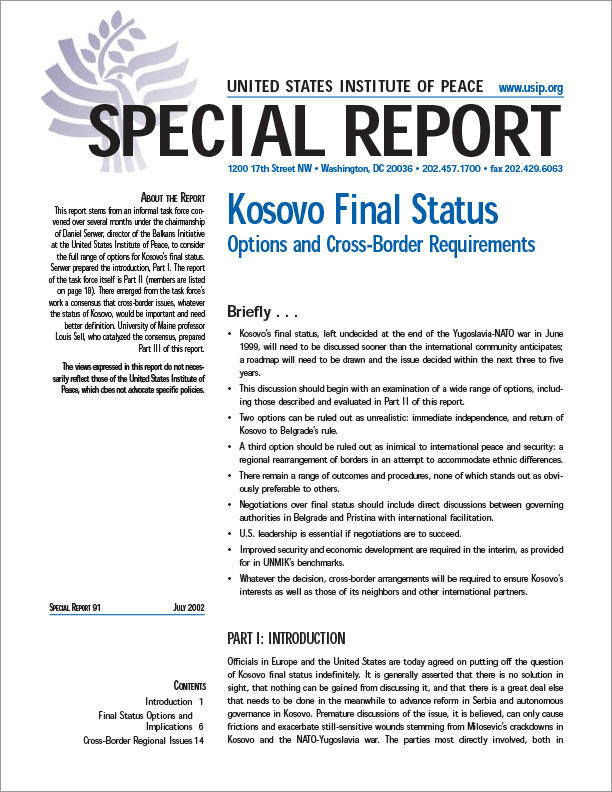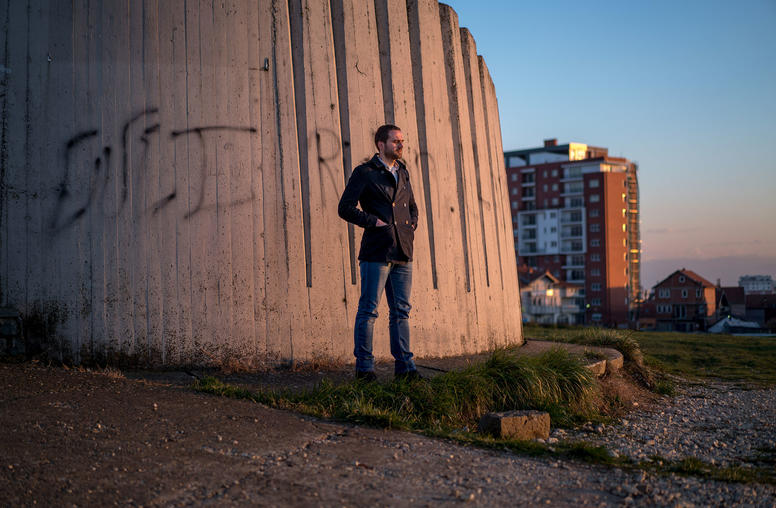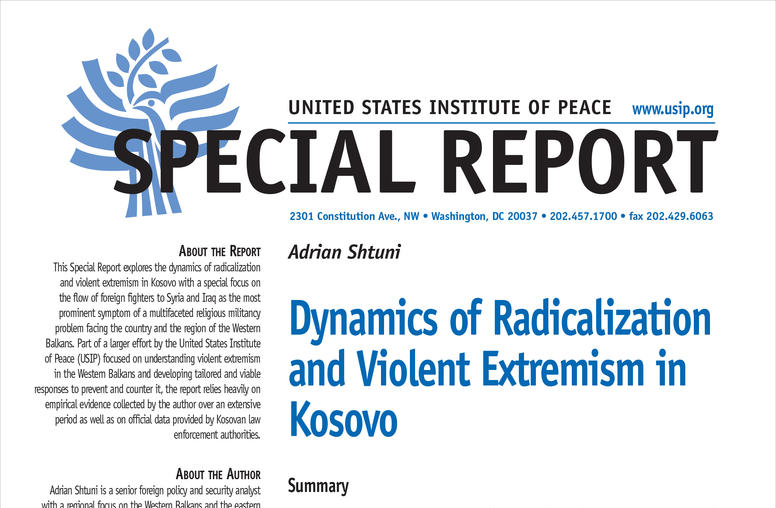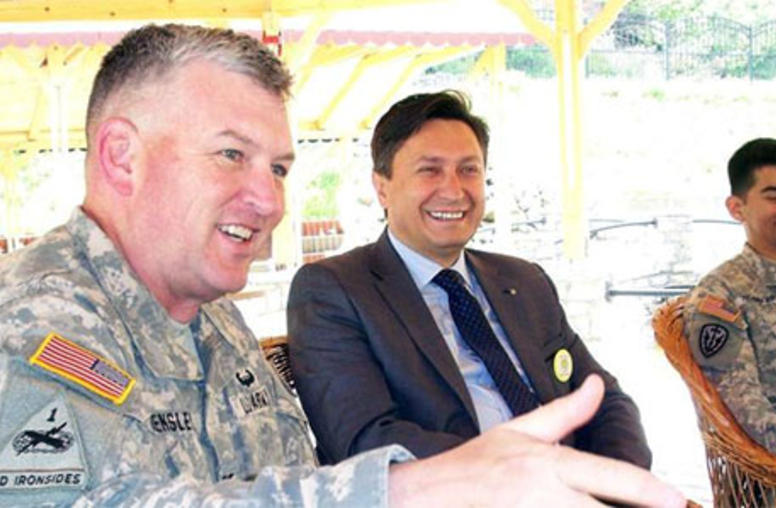Kosovo Final Status: Options and Cross-Border Requirements

Summary
- Kosovo's final status, left undecided at the end of the Yugoslavia-NATO war in June 1999, will need to be discussed sooner than the international community anticipates; a roadmap will need to be drawn and the issue decided within the next three to five years.
- This discussion should begin with an examination of a wide range of options, including those described and evaluated in Part II of this report.
- Two options can be ruled out as unrealistic: immediate independence, and return of Kosovo to Belgrade's rule.
- A third option should be ruled out as inimical to international peace and security: a regional rearrangement of borders in an attempt to accommodate ethnic differences.
- There remain a range of outcomes and procedures, none of which stands out as obviously preferable to others.
- Negotiations over final status should include direct discussions between governing authorities in Belgrade and Pristina with international facilitation.
- U.S. leadership is essential if negotiations are to succeed.
- Improved security and economic development are required in the interim, as provided for in UNMIK's benchmarks.
- Whatever the decision, cross-border arrangements will be required to ensure Kosovo's interests as well as those of its neighbors and other international partners.
About the Report
This report stems from an informal task force convened over several months under the chairmanship of Daniel Serwer, director of the Balkans Initiative at the United States Institute of Peace, to consider the full range of options for Kosovo's final status. Serwer prepared the introduction, Part I. The report of the task force itself is Part II. There emerged from the task force's work a consensus that cross-border issues, whatever the status of Kosovo, would be important and need better definition. University of Maine professor Louis Sell, who catalyzed the consensus, prepared Part III of this report.
The views expressed in this report do not necessarily reflect those of the United States Institute of Peace, which does not advocate specific policies



